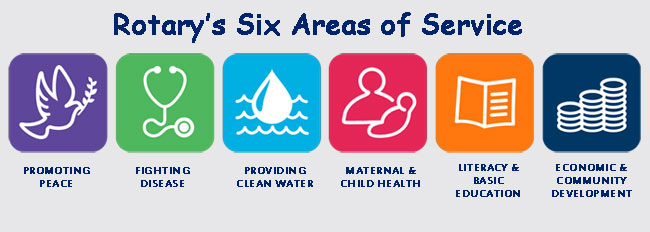The work of Rotary begins in the community, and every community has its own unique needs and concerns. While we serve in countless ways, through The Rotary Foundation we’ve focused our efforts in six key areas to maximize our impact. These areas encompass some of the world’s most critical and widespread humanitarian needs, and we have a proven record of success in addressing them. One of them is Disease Prevention and Treatment.
Rotary's top priority is the eradication of polio, but our members take on far greater responsibilities to fight disease. We set up health camps and training facilities in undeveloped countries and in communities struggling with HIV/AIDS and Malaria. We design and build the infrastructure for doctors, nurses, governments, and partners to reach the one in six people in the world who can't afford to pay for health care.
Disease prevention and treatment takes on many forms, from supporting studies to helping immunize people to improving drinking water and the sanitation infrastructure. The world relies on Rotary to tackle these global challenges, and to set an example for others to follow.
Here are some suggestions on how Rotary clubs, Districts and our service partners can address these needs both locally and internationally:
- Support health education programs that explain how diseases are spread and promote ways to reduce the risk of transmission.
- Help immunize people against infectious diseases.
- Support continuing education and training for health workers through scholarships, and public recognition.
- Improve and expand access to low-cost and free health care in underserved areas.
- Improve sanitation facilities by providing toilets and latrines that flush into a sewer or safe enclosure.
- Promote good hygiene habits through education. Proper hand washing with soap and water can reduce diarrhea cases by up to 35 percent.
- Develop or support programs that provide immunizations and antibiotics. Measles, malaria, pneumonia, AIDS, and diarrheal diseases are the leading causes of death in children under five.
Courtesy Rotary District 9800
